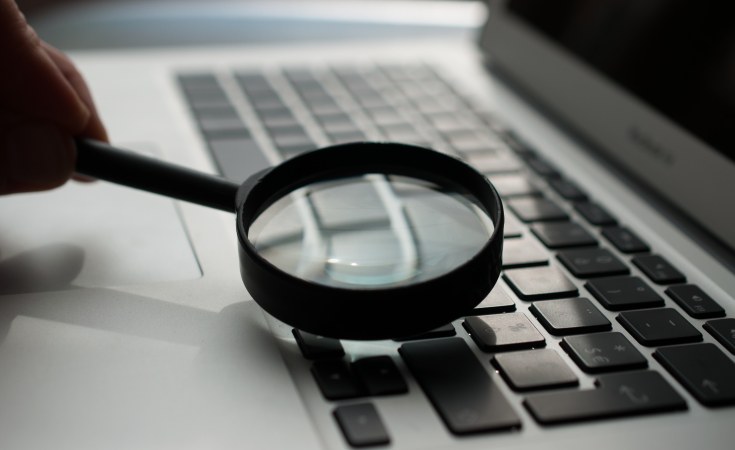Disinformation is on the rise, and social media companies, governments, and fact-checking groups are all struggling to keep up.
Fake news may spread through social media and the internet, but it doesn't stay there. It moves between online and offline environments with regularity and ease. A rumour started by an influencer on Facebook can become a topic of debate for television or radio talk shows. From there, it may be discussed in markets, atayah bases, okada stages or grins, disseminating through word of mouth. Completing the circle, these offline rumours can then return online, reinforcing the falsehood or skewing reality even further.
These links between online and offline networks are just one reason internet shutdowns are not a feasible solution to tackling West Africa's fake news epidemic. In fact, the uncertainty sowed by blackouts can make rumours more widely believed.
This hasn't stopped governments - such as Niger and Burkina Faso last year - shutting down the internet. In the last decade, people in 12 of the 15 member-states of the West African bloc ECOWAS have experienced some form of blackout, whether lasting for hours, days or even months. Governments typically cite the need stop disinformation spreading in order to protect national security, but the narratives they are concerned about stemming are, more often than not, ones that challenge the ruling party. Blackouts not only impinge on democratic rights and freedom of expression, but also have increasingly significant economic impacts, particularly for small and medium-scale businesses.
From moderation to legislation, what might work?
"Shutdowns hurt everyone and really don't solve the problem," argues David Akoji, special adviser to the Director General of Nigeria's National Orientation Agency (NOA). He suggests that social media companies need to do more to engage governments and respond promptly to disinformation circulating on their platforms.
These companies are increasingly recognising the challenge but are struggling to keep up, especially in regions such as West Africa. Response rates to user reports of abuse are slow; platforms have limited capacity to moderate content in local languages; and moderators lack understanding of nuanced political issues in the region despite its growing user base. On average, 17% of West Africans had direct access to social media in 2021, yet countries like Benin and Cabo Verde do not even appear to be on social media companies' radars when it comes to enforcing community standards, let alone tackling fake news.
"Platforms need to commit more resources to Africa," says Rosemary Ajayi, founder of the Digital Africa Research Lab. "This would include setting up regional trust and safety units and expanding their indigenous content moderator workforce. They need to understand the disinformation ecosystems, take steps to penalise repeat offenders, and demonetise fake news".
Another element of tackling fake news is public education. West African governments tend to focus their attention on more punitive approaches, but civic engagement is arguably the most critical tool in the fight. Almost all countries in the region have fact-checking initiatives run by media houses in partnership with civil society. These groups' efforts are increasingly evolving to capture local languages and offline-online overlaps, but they still strain to keep up with the sheer volume of falsehoods, face accusations of political bias, and struggle to compete with the audiences of both online and offline influencers.
However, the benefits of fact-checking go beyond the ability to assess individual claims. The work of fact-checking initiatives can encourage people to think more critically about information they receive in general and provide them with tools to attempt to ascertain a claim's truthfulness before sharing it. Nigeria's NOA will soon run its seventh fact-checking course for government officials, security agencies and civil society groups. "When it comes to fighting fake news in Nigeria, public enlightenment, advocacy and sensitisation will go a very long way," says Akoji.
A final strategy that states in West Africa have turned to in combating fake news is legislation and regulation. Burkina Faso, Benin, Cote d'Ivoire, Senegal, and The Gambia have all adapted or reinterpreted existing media codes to account for the rise of digital misinformation. Meanwhile, Guinea, Mali, Niger, Nigeria, Sierra Leone, and Togo have passed new cybercrime or cybersecurity laws since 2015 that lay out punishments for sharing falsehoods - generally a combination of time in prison and/or a substantive fine.
According to Africa Check's Samba Dialimpa Badji, these approaches - and therefore their effects - tend to be highly limited. "These are laws that put emphasis on repression without setting up mechanisms that contribute to limiting the circulation of falsehoods," he says.
Questions also remain about their selective application and interpretation. In January 2020, Amnesty International reported that more than 17 journalists, bloggers and government critics had been prosecuted in less than two years under Benin's revised digital code. Ajayi raises concerns that these laws are used to curtail citizens' rights and also questions whether governments will apply the rules to themselves.
"It's important to reiterate that across Africa, the government itself is responsible for funding, creating and disseminating disinformation," she says.
Idayat Hassan is the director of the Centre for Democracy and Development. Jamie Hitchen is the Centre for Democracy and Development's editor-at-large and an honorary research fellow at the University of Birmingham.


